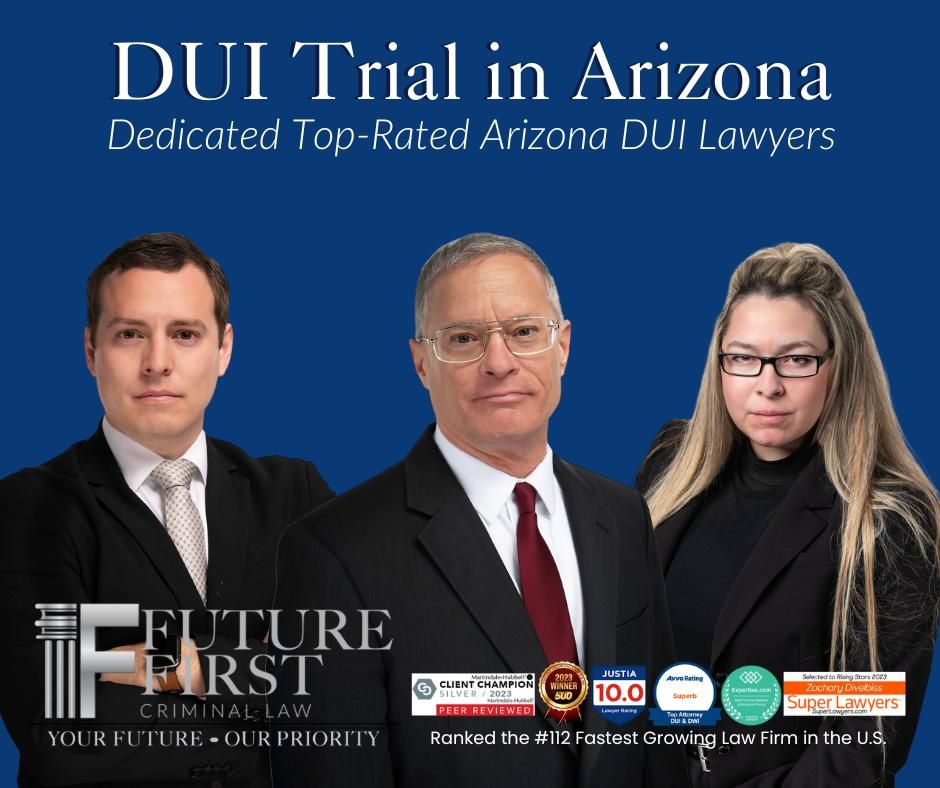Complaint Is Not Evidence
The fact that the state has brought charges against the defendant is not evidence of guilt. Jurors are explicitly instructed not to assume guilt based solely on the charges. The defendant’s plea of “not guilty” emphasizes that the state must prove each element of the charge beyond a reasonable doubt.
Duty of Jurors in a DUI Trial
As jurors, their primary duty is to decide the case through the application of provided jury instructions to the discerned facts. These instructions serve as the rules guiding the decision-making process, ensuring a fair and just resolution.
They are tasked with determining the facts solely from the evidence presented in court, including witness testimonies and exhibits. Guesswork is strictly prohibited, and any influence from sympathy or prejudice must be avoided. It’s essential not to be swayed by perceived opinions about the facts.
Jurors, as the exclusive judges of what transpired, must consider all instructions without selectively focusing on any particular one. As the facts are determined, certain instructions may become irrelevant, and jurors should then focus on those applicable to the established facts.
Jury Not to Consider Penalty
Jurors are reminded that their responsibility is to decide the defendant’s guilt based on the facts and provided jury instructions. Deliberations should be free from consideration of potential penalties, as the determination of punishment is within the purview of the judge.
Jury – Judges of the Evidence in a Trial
In their role as jurors, they exclusively evaluate the evidence presented in this case. “Evidence” encompasses witness testimonies, writings, material objects, or other sensory elements offered to prove or disprove a fact. Their duty is to determine, based on this evidence and reasonable inferences, whether the state has proven the truth of the charge beyond a reasonable doubt.
The verdict they reach should solely be based on the evidence introduced in court, avoiding reliance on unsupported theories, speculation, or guesswork. Their decision-making process must remain uninfluenced by sentiment, sympathy, passion, prejudice, public opinion, or personal feelings. Factors like race, color, religion, national ancestry, gender, or sexual orientation should not sway their judgment; their verdict should be fair, impartial, and grounded in the case’s facts.
Jury – Judges of the Credibility of Witnesses in a Trial
When determining the facts in a felony DUI case, they must carefully assess the testimony’s credibility. They have the discretion to accept or reject a witness’s account in whole or in part. Proof beyond a reasonable doubt is the standard they should apply, recognizing that absolute certainty is rare in this world. If convinced of the defendant’s guilt, they should render a guilty verdict; if there’s a real possibility of innocence, they must give the defendant the benefit of the doubt and deliver a not guilty verdict.
Direct and Circumstantial Evidence in a Trial
Evidence is categorized into “direct” and “circumstantial” types. Direct evidence involves witness accounts of observed events, while circumstantial evidence infers the existence of a fact from another fact. They are empowered to determine the weight given to all evidence, irrespective of whether it’s direct or circumstantial. Both types are acceptable, and the law makes no distinction between them.
Duty To Deliberate
Their collective verdict must represent the considered judgment of each juror, requiring unanimity. While deliberating, they are encouraged to consult and discuss but without compromising individual judgment. Reexamination of views is permitted, but they shouldn’t surrender their honest determination merely to align with fellow jurors’ opinions. Their role is that of impartial judges of the facts, seeking the truth from the evidence presented.
Defendant Need Not Testify
The defendant’s decision not to testify is not an indication of guilt. They must not let this choice influence their deliberations or lead to assumptions about the defendant’s likely guilt.
Evidence to Be Considered
They must determine the case’s facts solely from the evidence presented in court. If an objection to a question was sustained or if testimony was stricken from the record, they must disregard that information.
Defendant Need Not Produce Evidence
The state must prove guilt based on evidence, and the defendant is not required to produce any evidence. The decision not to produce evidence should not be considered evidence of guilt.
Lawyers’ Comments Are Not Evidence
Statements made by lawyers during opening statements and closing arguments are not considered evidence. While these statements may aid their understanding, they don’t carry the same weight as actual evidence presented during the trial.
Stipulations
Lawyers can stipulate certain facts, meaning both sides agree on their existence as part of the evidence. They should treat stipulations like any other evidence, with the freedom to accept or reject them.
Closing Instruction
Once the case is submitted for decision, the jury will proceed to the deliberation room, where they will select a Foreperson to preside over discussions.
It is suggested that they initiate a discussion to establish their deliberation schedule, over which they have full control. The jury can set and adjust the schedule by mutual agreement, subject to the court’s approval. After finalizing the schedule, they should inform the bailiff.
Deliberations should only take place when all jurors are present in the jury room. Any discussions about the case are strictly confined to these deliberation sessions, and jurors are advised to refrain from talking about the case during breaks or recesses. The admonition from the trial remains in effect when the jurors are not actively deliberating.
After confirming the schedule, it is recommended that the jurors review the written jury instructions and verdict form(s). It’s beneficial for them to discuss these materials to ensure a collective understanding. Throughout their deliberations, they must adhere to the provided instructions and refer to them to address any questions related to applicable law, procedure, and definitions.
If any juror or the entire jury has a question during deliberations or wishes to communicate with the judge on any matter, they should document it in writing and sign it. The judge will consider the question or note, consulting with counsel before providing a written response at the earliest opportunity.
During deliberations, jurors should avoid communicating or providing information to anyone about the case through any means. Usage of electronic devices or media, including phones, computers, the internet, messaging services, chat rooms, blogs, websites, or social media, for discussions or research related to the case, is strictly prohibited until their discharge.
Remember, jurors are not to disclose their stance, whether numerically or otherwise, to anyone, including the judge, until after they have reached a verdict or have been discharged.
ARS §28-1381(A)(1)
Driving While Under the Influence
The crime of driving while under the influence of intoxicating liquor, any drug, a vapor releasing substance containing a toxic substance or any combination of liquor, drugs or vapor releasing substances if the person is impaired to the slightest degree, a violation of Section 28-1381(A)(1), Arizona Revised Statutes. Requires the state to prove, beyond a reasonable doubt, that:
-
- Defendant drove or was in actual physical control of a vehicle in Phoenix, Arizona;
- The defendant was under the influence of intoxicating liquor at the time of driving or being in actual physical control of the vehicle;
- The defendant was impaired to the slightest degree because of being under the influence of intoxicating liquor.
ARS §28-1381(A)(2)
Alcohol Concentration of .08 or More
The crime of having an lcohol concentration of 0.08 or more within two hours of driving or being in actual physical control of the vehicle and the alcohol concentration results from alcohol consumed either before or while driving or being in actual physical control of the vehicle, a violation of Section 28-1381(A)(2), Arizona Revised Statutes, requires the state to prove, beyond a reasonable doubt, that:
-
- The Defendant drove a vehicle in Phoenix, Arizona; and
- The Defendant had an alcohol concentration of .08 or more within two hours of driving; and
- The alcohol concentration resulted from alcohol consumed before or while driving the vehicle.
Presumptions in a Trial
The statute in Arizona provides that it is unlawful for any person under the influence of intoxicating liquor to drive a vehicle within this state. The law further provides that, in any criminal prosecution, the amount of alcohol in the defendant’s blood or breath gives rise to the following presumptions:
- If there was, within two hours of the time of driving, .05 or less alcohol concentration in the defendant’s blood or breath, it might be presumed that the defendant was not under the influence of intoxicating liquor;
- If there was, within two hours of the time of driving, in excess of .05, but less than .08, the alcohol concentration in the defendant’s blood or breath, such fact shall not give rise to any presumption that the defendant was, or was not, under the influence of intoxicating liquor, but such fact may be considered, with other competent evidence, in determining the guilt or innocence of the defendant;
- If there was, within two hours of driving time, .08 or more alcohol concentration in the defendant’s blood or breath. In that case, it might be presumed that the defendant was under the influence of intoxicating liquor.
The statute further provides that the foregoing provisions shall not be construed as limiting the introduction and consideration of any other competent evidence bearing upon whether or not the defendant was under the influence of intoxicating liquor.
You are instructed to look at all the facts in the case, and you may ignore the statutory presumptions even if the defendant produces no evidence to the contrary.
The presumptions are rebuttable and are to be considered by you, along with all the other evidence introduced, as to whether or not the accused was affected by the alcohol consumed. Even with the assistance of the presumption, the state must prove every element of the crime charged, beyond a reasonable doubt, before you may find the defendant guilty.
Contact our Arizona DUI Defense Lawyers for Your Trial
The trial process for a DUI in Arizona can be complicated and it is important to have an experienced lawyer on your side. If you or a loved one has been charged with a DUI, do not plead guilty without first contacting the Arizona DUI Team.
We are a team of experienced DUI defense lawyers who will fight for your rights and work to get the best possible outcome in your case. Develop a client-lawyer relationship with us and we will be there for you every step of the way.
Call us today at 602-932-7890 to schedule a free consultation.
DUI Trial in Arizona
Phoenix Office Locations
2999 N. 44th St. Suite 307 Phoenix, AZ 85018
8650 N. 35th Ave. Suite 110 Phoenix, AZ 85051
We are available for You 24/7!
Reasonable Flat Fee Pricing
Payment Plans and Loans Available
Contact Us Today For Your Free Phone Consultation!


